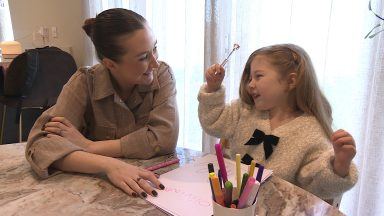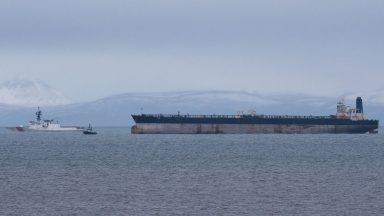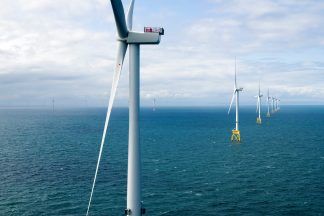The Government has begun a fresh six-week consultation on whether to ban plastic wet wipes after considering the problem for several years.
It first laid out this intention in 2018 and has had numerous calls for evidence and consultations, with 96% of respondents saying in a 2021 survey that they supported a ban.
Critics, including environmental groups and the House of Lords Industry and Regulators Committee, have complained that the Government is taking too long to implement a policy the vast majority of people have long agreed with.
In a report published last month, the Lords committee described a further consultation as “unnecessary and deeply damaging to the environment”.
Wet wipes are harmful as once flushed, the plastic in them breaks down into microplastics which have come to pollute almost every environment on Earth.
Plastic stops the wipes from breaking down and so they can also clog up sewers by becoming part of fatbergs that cause major blockages.
These are formed from a mixture of fat, oil and grease poured down sinks and drains that combine with items flushed down the toilet like wet wipes, nappies and cotton buds.
A ban on plastic wet wipes would help reduce a major ingredient of fatbergs while also cutting the amount of plastic going into the waterways.
Environment secretary Therese Coffey said: “Wet wipes containing plastic are unnecessary and are polluting our environment.
“Today’s plan shows we will continue to tackle plastic pollution in our waterways, building on banning microbeads in personal care products to taking billions of plastic bags out of circulation.”
Around 90% of wet wipes contain plastic according to the Flood Hub, which is supported by the Environment Agency, and they cause 93% of fatbergs in sewers.
Water UK said there are around 300,000 blockages a year which cost around £100m to clean up, with the water industry supporting a plastic ban.
David Henderson, Water UK chief executive, said: “We welcome the Government’s plan to ban plastics from wet wipes.
“When flushed, these wipes cause fatbergs and other blockages that trigger overflow spills into rivers or flood homes and businesses.
“As our Bin the Wipe campaign makes clear, these products should never be flushed. We can all do our bit by putting wet wipes in the bin, rather than flushing them.”
Plastic-free alternatives are already available at retailers such as Boots, Tesco and Aldi, the Government said, with a ban encouraging others to stock others to make plastic-free products to consumers.
The UK-wide consultation will last until November 25 and its introduction follows a single-use plastic ban on items such as plates, bowls, trays, containers, cutlery and balloon sticks on October 1.
The Government said it wants to remove all avoidable – that which could be reused or recycled – plastic waste by 2042.
The UK environment secretary Therese Coffey said wet wipes are “unnecessary”, as the consultation was launched.
Scottish circular economy minister Lorna Slater said: “This is very welcome progress towards a goal we all want to achieve: tackling plastic pollution.
“Wet wipes containing plastic are an avoidable and yet growing source of beach litter. They are unsightly; they pose risks to the environment and wildlife, and annually they contribute to around 36,000 sewer system blockages in Scotland, risking flooding and costing approximately £7m to clear.
“This is only the first step: legislation alone cannot solve this issue and we all need to be more careful about what we flush. We continue to support Scottish Water’s nature calls campaign highlighting the impact of inappropriately flushed items and the damage they cause to our environment.
“We have already successfully delivered a ban on other single-use plastic products such as straws and cutlery – which also contribute to marine litter. This will deliver on a commitment made in our marine litter strategy and is another important step on our journey towards a truly circular economy.”
Follow STV News on WhatsApp
Scan the QR code on your mobile device for all the latest news from around the country



























